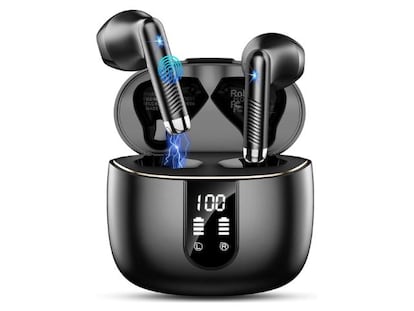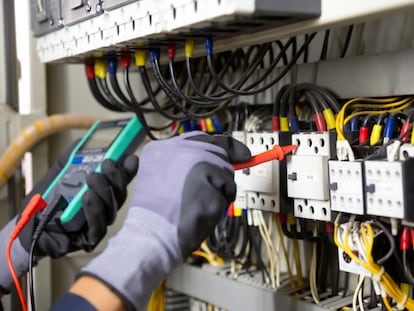A healthy prostate: Urologists’ top recommendations for their patients
If a man works with his doctor, he will most likely improve his chances of dodging cancer
A common question a urologist often hears from his male patients is: “What can I do to reduce my risk of developing prostate cancer?” This is a great question all men should be asking. Men may not think much about their prostate until they have problems with it. But why wait until something goes wrong? If a man can work with his doctor in fine tuning how to treat his prostate with respect, then he will most likely improve his chances of dodging prostate cancer.

The prostate is a walnut-sized gland located between the bladder and the penis and has the important job of producing the fluid that together with sperm cells from the testicles and fluids from other glands makes up semen. Besides prostate cancer, the prostate is vulnerable to other conditions associated with it such as prostatitis and benign prostatic hyperplasia. That’s why the earlier in life a man does think about it, the greater the likelihood of avoiding potential issues in the future. All men can and should take preventative steps to keep their prostate in tip-top shape, regardless of whether they have a family history of prostate cancer or not.
According to the American Cancer Society, about 161,360 new cases of prostate cancer will be diagnosed in 2017. Around one man in seven will be diagnosed with prostate cancer in his lifetime.
All men can and should take steps to keep their prostate in tip-top shape, regardless of whether they have a family history of cancer or not
Here are seven ways a man can improve his chances of keeping his prostate healthy and cancer free:
1. Maintain a healthy body weight and exercise regularly
Men should reach a healthy body weight for their height paying special attention to reducing central abdominal obesity or belly fat. Keeping a consistent, regular exercise program can help maintain weight and keep it from accumulating in the belly area.
2. Eat more fruit and vegetables
Men should consume at a minimum five servings of fruits and vegetables each day. The more a man chooses colorful produce to eat, the better. Choose from tomatoes loaded with the phytochemical lycopene along with pink grapefruit, watermelons and papaya, which also contain this healthy compound for prostates. Cruciferous vegetables are always a good choice for preventing all cancers and include broccoli, cauliflower, cabbage, Brussels sprouts, Bok choy and kale.
3. Get some sun
Always use sunscreen but don’t totally avoid the sun either. The sun is our main source of vitamin D, which has been shown to help reduce the risk of developing prostate cancer. Too little sun and a man may run the risk of increasing his chance of getting the disease.
4. Don’t smoke
The role of smoking appears to increase the risk of prostate cancer by affecting circulating hormone levels or through exposure to carcinogens. If a man currently smokes, he should seek help in quitting as soon as possible.
5. Choose foods rich in selenium
The mineral selenium has been found in studies to have a role in preventing prostate cancer. Include more selenium rich foods such as wheat germ, tuna, herring, beef liver, eggs, sunflower and sesame seeds, cashews, mushrooms, garlic and onions.
The mineral selenium has been found in studies to have a role in preventing prostate cancer
6. Know your family history for prostate cancer
It’s always advisable to know your family medical history and for a man it is important to know if any close relatives (father, brother or grandfather) ever had prostate issues or prostate cancer. A man’s doctor needs to be informed of this as any man having a father or brother with prostate cancer has double the chance of developing this disease.
Other factors putting a man at a greater risk of developing prostate cancer include:
- · African-American
- · People of Scandinavian descent
- · Any man who has two or more family members who were diagnosed with prostate cancer
7. PSA blood test and digital rectal exam
The standard tests for checking a man’s prostate is the prostate specific antigen (PSA) and digital rectal exam. A man should consult with his doctor as to when these tests should begin but they should be done annually once they are started.
Dr. Samadi is a board-certified urologic oncologist trained in open and traditional and laparoscopic surgery and is an expert in robotic prostate surgery. He is chairman of urology, chief of robotic surgery at Lenox Hill Hospital. He is a medical correspondent for the Fox News Channel's Medical A-Team. Follow Dr. Samadi on Twitter, Instagram, Pinterest, SamadiMD.com and Facebook.
Tu suscripción se está usando en otro dispositivo
¿Quieres añadir otro usuario a tu suscripción?
Si continúas leyendo en este dispositivo, no se podrá leer en el otro.
FlechaTu suscripción se está usando en otro dispositivo y solo puedes acceder a EL PAÍS desde un dispositivo a la vez.
Si quieres compartir tu cuenta, cambia tu suscripción a la modalidad Premium, así podrás añadir otro usuario. Cada uno accederá con su propia cuenta de email, lo que os permitirá personalizar vuestra experiencia en EL PAÍS.
¿Tienes una suscripción de empresa? Accede aquí para contratar más cuentas.
En el caso de no saber quién está usando tu cuenta, te recomendamos cambiar tu contraseña aquí.
Si decides continuar compartiendo tu cuenta, este mensaje se mostrará en tu dispositivo y en el de la otra persona que está usando tu cuenta de forma indefinida, afectando a tu experiencia de lectura. Puedes consultar aquí los términos y condiciones de la suscripción digital.





























































